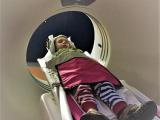The US Centers for Disease Control and Prevention (CDC) said today that officials are investigating a spike in acute flaccid myelitis (AFM) cases, mostly in children, that looks similar to increases they saw in the late summer and fall of 2014 and 2016, with 127 cases under investigation in 22 states.
So far 62 of the cases—marked by sudden onset of limb weakness and decreased muscle tone—have been confirmed, Nancy Messonnier, MD, director of the CDC's National Center for Immunization and Respiratory Diseases, said today at a media briefing. More than 90% have been in children, and the average age is 4 years.
She emphasized the AFM cases are very rare, affecting 1 in 1 million people, and the condition is not caused by poliovirus, though symptoms can be similar to polio. In addition, unlike with polio, most children recover, though some require ongoing treatment. Only one death has been reported, which involved an AFM illness reported in 2017.
Messonnier urged parents to seek care right away if children experience AFM symptoms.
Cause still a mystery
In 2014, a large AFM epidemic coincided with a national outbreak of severe respiratory illness caused by enterovirus D68 (EV-D68), but in-depth testing of patient samples hasn't consistently found a common cause.
Messonnier said the search for a cause is frustrating, and so far, no particular pathogen or immune response has been identified that would explain the big AFM peaks. Some patients have tested positive for enterovirus or rhinovirus.
Other countries have reported AFM cases, but not the same seasonal pattern the United States has experienced. Messonnier added that health officials are considering other potential causes, such as West Nile virus and environmental toxins, though none of the cases have involved them.
So far, the CDC hasn't seen any geographic patterns based on reporting from states.
And for now, it's hard to say if 2018 will equal or surpass spikes seen in 2014 and 2016, Messonnier said, adding that state and federal health officials haven't finished the whole diagnostic algorithm for many of the cases reported over the past several weeks. Also, she said there can be lags in reporting because of the time it takes to review a patient's clinical syndrome and radiographic findings.
To give parents, healthcare workers, and public health officials a look at what to expect, she said the CDC will report suspected cases this year, as well as confirmed ones. The agency had a teleconference with health providers slated for later today, and it provided a toolkit for diagnosing AFM, along with instructions for reporting suspected cases.
"AFM is a very rare and serious condition," Messonnier said, urging parents to take preventive steps such as encouraging hand washing, ensuring that children receive recommended vaccinations, and making sure they wear insect repellent.
EV-D68 capacity to infect nerve cells
In research developments, a team based at the J. Craig Venter Institute conducted experiments to see if a specific EV-D68 genotype is linked to neurologic symptoms and found that some viruses from the 2014 outbreak can infect neuronal cells. They reported their findings today in mBio.
Using a cell culture infection model based on a neuroblastoma cell line, they assessed the infectivity of different EV-D68 isolates.
Two other types of cells that they used supported all EV-D68 strains, but only the neuroblastoma cell line supported a subset of recent strains, including those from the 2014 outbreak. Barrier to viral entry appeared to be partly responsible for the neurotropism.
The investigators confirmed the findings using primary human neuron cell cultures and in a mouse paralysis model.
The group wrote that the cell line they developed could be used to further explore EV-D68 genetic factors associated with neurologic effects, adding that replication in the cell line could be used to rapidly screen for neurotropic EV-D68 strains.
See also:
Oct 8 CIDRAP News story "States and CDC probe reports of rare poliolike symptoms in kids"
Oct 16 mBio abstract





















